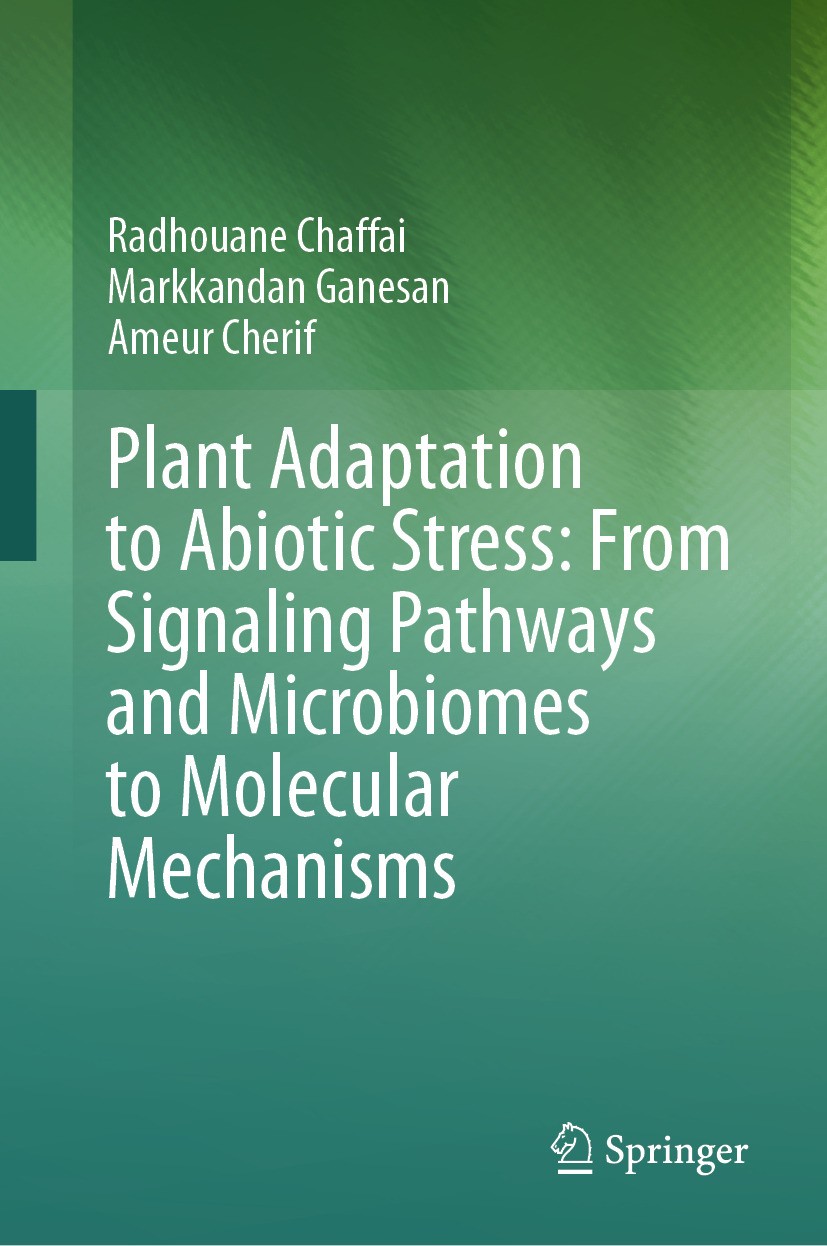| 书目名称 | Plant Adaptation to Abiotic Stress: From Signaling Pathways and Microbiomes to Molecular Mechanisms | | 编辑 | Radhouane Chaffai,Markkandan Ganesan,Ameur Cherif | | 视频video | http://file.papertrans.cn/749/748427/748427.mp4 | | 概述 | Explains molecular pathways and adaptation of plant responses to abiotic stress.Discusses molecular processes, including gene regulation, noncoding RNAs, and hormones in abiotic stress response.Offers | | 图书封面 |  | | 描述 | .The book “Plant Adaptation to Abiotic Stress: From Signaling Pathways and Microbiomes to Molecular Mechanisms” comprehensively examines abiotic stressors—cold, heat, light, salinity, and water scarcity—across its 18 chapters. Focusing particularly on .Arabidopsis thaliana., it investigates abiotic stresses, adaptation strategies, and molecular pathways. Furthermore, it addresses broader issues, including climate challenges, food security, water scarcity, and agricultural concerns such as soil acidity and aluminum stress. It proposes adaptive measures for cultivating stress-resistant crops and sheds light on genetic modification methods such as CRISPR-Cas9, integrating nanotechnology in plant breeding. Emphasizing transcription factors, post-translational protein modifications, and diverse noncoding RNAs (long noncoding RNAs, circular RNAs, microRNAs, and small interfering RNAs), the book highlights their role in regulating gene expression during stress responses. It specifically underscores secondary messengers, plant hormones, and MAPK cascades within intracellular signaling pathways. Additionally, it discusses the roles of endophytic bacteria and microbial interactions in bolste | | 出版日期 | Book 2024 | | 关键词 | Abiotic Stress; Gene Regulation; Non-Coding RNAs; Plant Breeding Technologies; Plant growth-promoting rh | | 版次 | 1 | | doi | https://doi.org/10.1007/978-981-97-0672-3 | | isbn_softcover | 978-981-97-0674-7 | | isbn_ebook | 978-981-97-0672-3 | | copyright | The Editor(s) (if applicable) and The Author(s), under exclusive license to Springer Nature Singapor |
The information of publication is updating

|
|
 |Archiver|手机版|小黑屋|
派博传思国际
( 京公网安备110108008328)
GMT+8, 2026-2-9 14:02
|Archiver|手机版|小黑屋|
派博传思国际
( 京公网安备110108008328)
GMT+8, 2026-2-9 14:02


